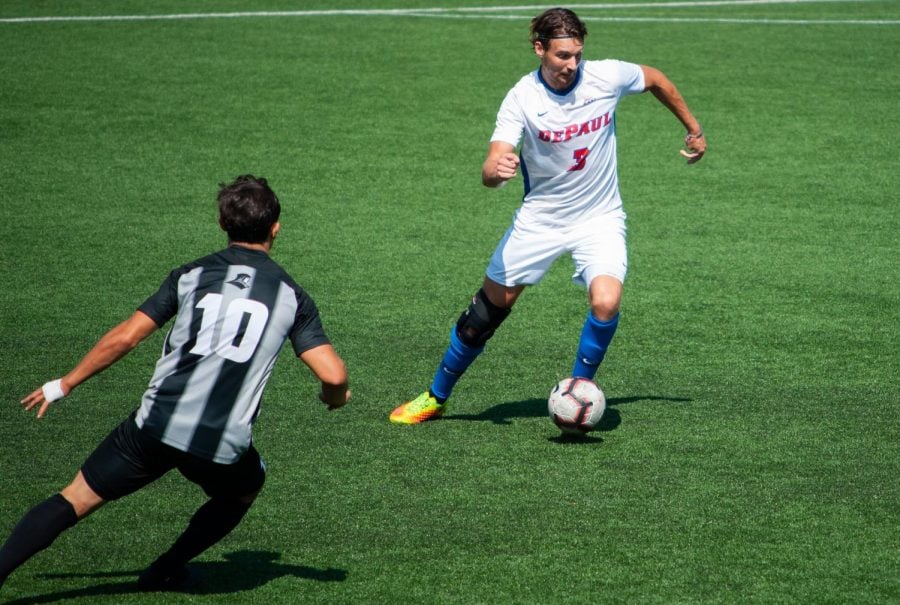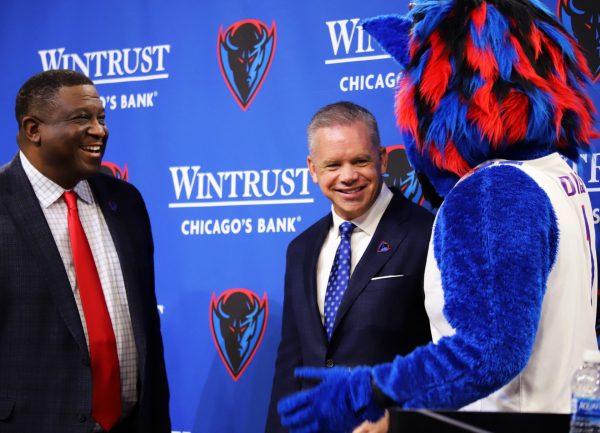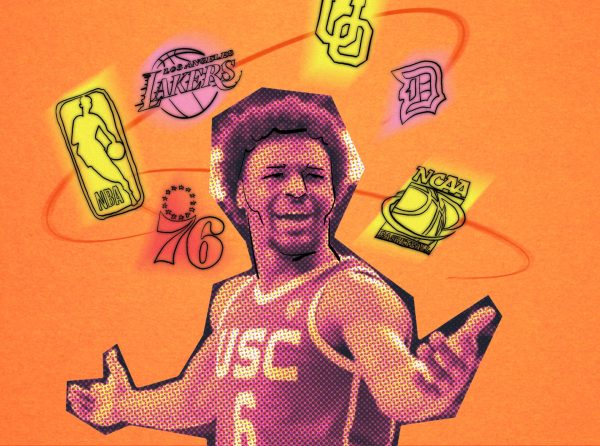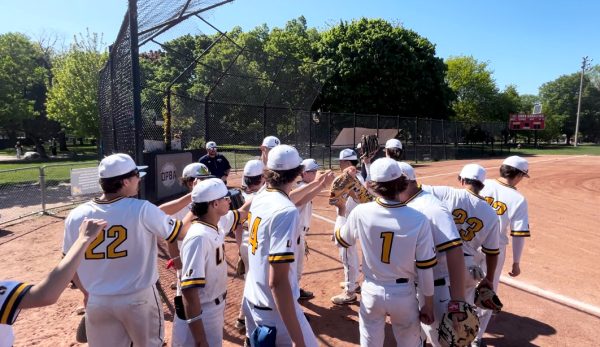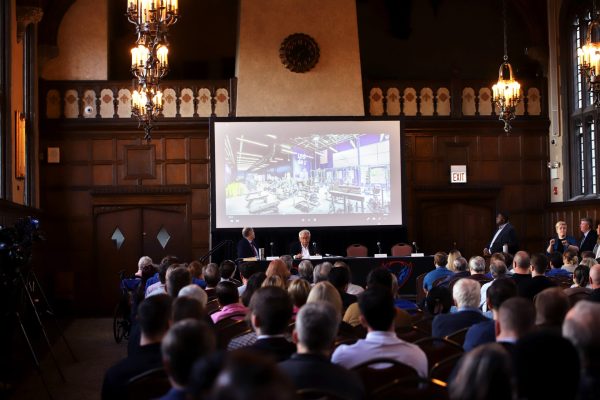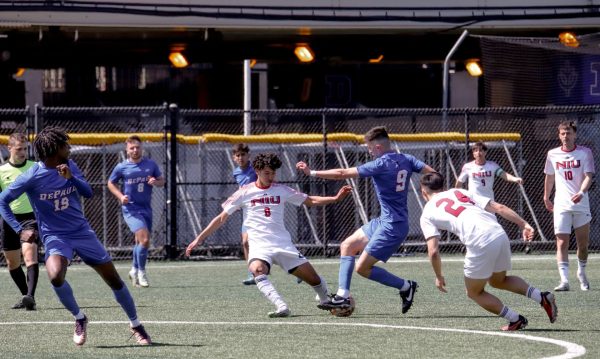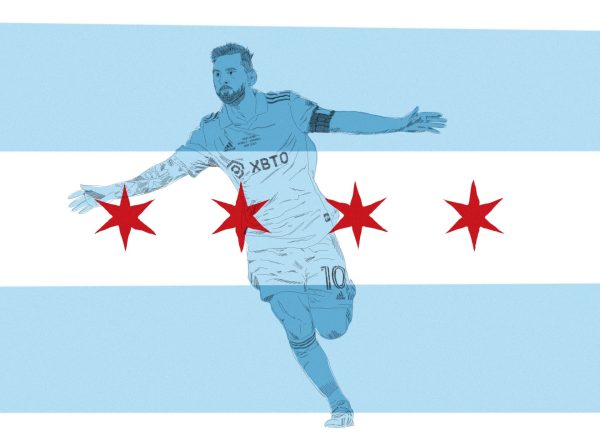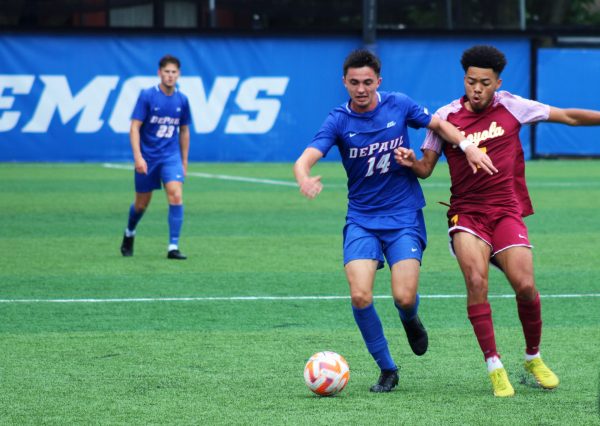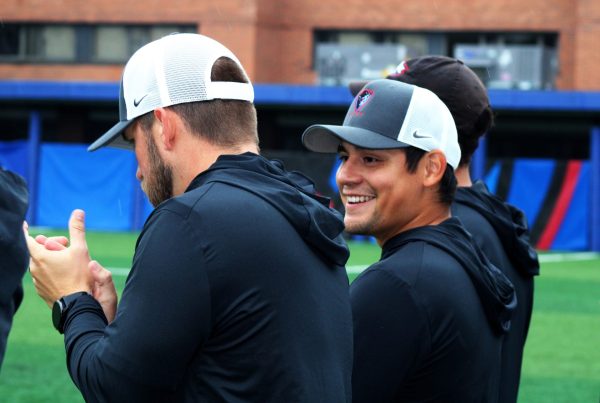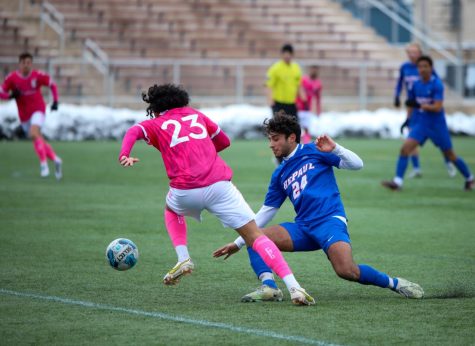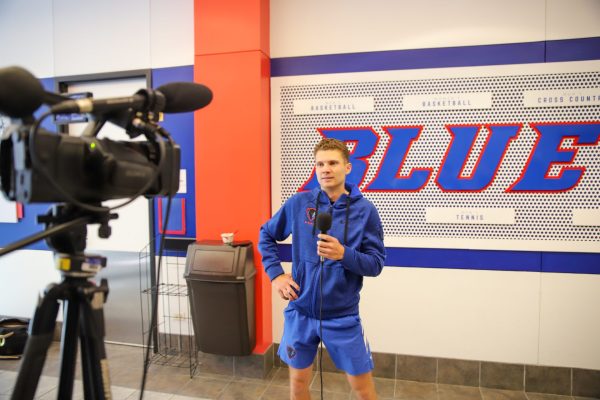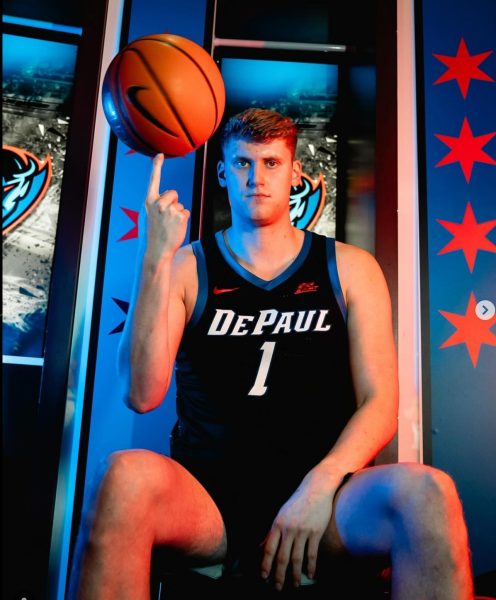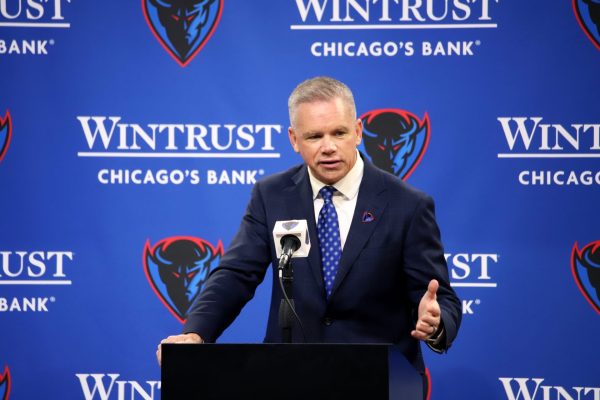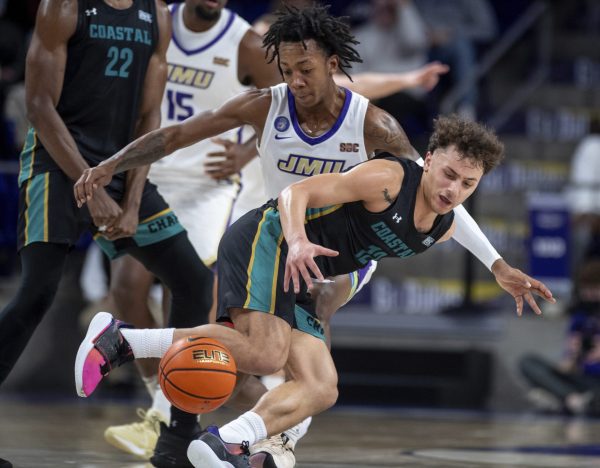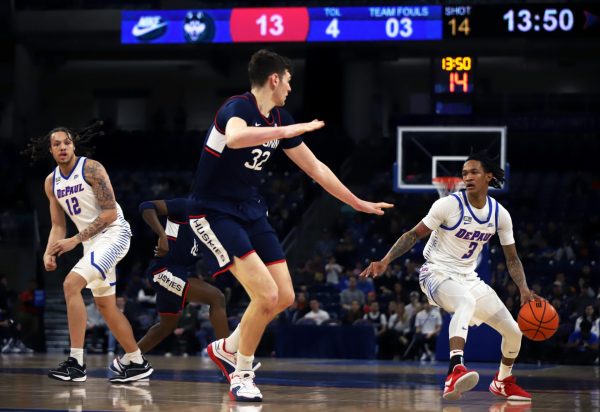From Amsterdam to Chicago: Get to know DePaul’s De Bruijne off the pitch
Jonthan Aguilar | The DePaulia
DePaul junior defender Max De Bruijne dribbles past a Providence forward during DePaul’s 2-1 win over the Friars on Sep. 14, 2018.
Imagine leaving everything you’ve ever known and taking on a new cultural journey in a foreign country at 18 years old. Alone. Adjusting to a city bigger than any you’ve seen before.
In the Netherlands, you either play soccer or you study. In the United States, you can do both. That’s why 6-foot-5-inch Dutch defender, Max De Bruijne, chose to come to DePaul.
“My dad and I sent out probably a hundred emails to any D-1 college,” De Bruijne said. “I knew I wanted to play D-1 and I wanted a good academic school. I only heard back from like 15 coaches. Two were offers that my family could afford. One was DePaul and the other was UW-Madison. But I love Chicago, so I had to go for Chicago.”
De Bruijne, now 21, was born and raised in Amsterdam.
He grew up playing soccer and tennis, but as he grew older, he committed to soccer. From 10 to 14 years old, he learned his fundamentals at Dutch soccer club, SV Rap.
Then he took a huge step.
Before coming to Chicago, De Bruijne was team captain for AFC Amsterdam, which is in the Tweede Divisie. That is the highest amateur level team in the Netherlands that also plays against professional teams.
“Max is a phenomenal person who brings a great amount of passion to training sessions, games and anything we do as a team,” DePaul soccer coach Mark Plotkin said. “He grew up in an extremely competitive environment in the Netherlands and brings that mentality to everything we do.”
De Bruijne had to make adjustments on the pitch. Back home, he played as a central midfielder. Once he got here, the coaches threw him at center back.
“It took Max a bit of time to get fully adjusted but he has become one of the best defenders in the Big East,” his teammate, Saša Labovic said. “Within his few years, his discipline has grown, as well as his ability to lead the team verbally. He also brought his unique style and knowledge to the team. It has been a pleasure playing next to him for the past three years.”
But not many people know what’s truly behind the towering defenseman off the pitch.
Besides his love for weight-lifting, Dutch rap and house music—De Bruijne goes beyond the surface.
“I think that few people know that I’m a very nice guy. I’m an emotional guy and a real family guy. I love my family,” De Bruijne said. “It’s funny ’cause a week ago a guy from our team walked up to me and said, ‘Yo you look like you’re 35-40 years old,’ and I was like, ‘I’m a real nice guy! I’m not like a huge, angry, scary guy or whatever—you know?’”
“He is one of the most polite individuals you’ll interact with. Max always greets you with a smile and shakes your hand,” coach Plotkin said.
As a polite, family guy—the distance hasn’t been easy. His parents and younger sister supported his decision to come here and have visited many times, but he gets homesick.
“What I really miss back home is—when it’s warmer out—everyone is sitting outside at a café, having a drink. Everyone is having a conversation with each other,” De Bruijne said. “That is something that I really miss sometimes because here, for example, if I go to dinner and I’m trying to have a conversation, it’s like sports are on and everyone is watching that. It’s very loud—so I’m just like I want to get out of here.”
From the moment he landed here, De Bruijne had to quickly learn to adjust to the new culture.
“Something that is very hard to explain, just hard for me to even put into words, is the culture,” De Bruijne said. “The culture is very different from back home. Lowkey, there is a big difference in people.”
The way people communicate here is different—De Bruijne said it’s something one just has to experience for themselves when in a foreign country.
Food was also a major adjustment. In the Netherlands, breakfast is a slice of toast with cheese. In the afternoon, a banana and some bread are typical. In the evening, a hot meal like ‘stamppot’ and stew is the usual. Here, the food is excessive and most people really eat whatever, whenever, he said
His teammates love when he brings back Dutch food and sweets for them, Labovic’s favorite being the Dutch cheese.
When he arrived freshman year—the dorm life was tough. Living in a dorm is a big part of the college experience here in the States. In Europe, however, it isn’t. Students live off-campus. School is just school—no sports, no dorms.
“I lived with Saša in just one room. I thought it was really weird to have a small bed and just one bedroom to share with someone on campus,” De Bruijne said.
His dorm situation didn’t end up that bad since Labovic became one of his best friends. Labovic’s family has taken care of De Bruijne like their own son.
De Bruijne finds his entire American experience helpful for his future career since he has learned a new culture and developed a foreign network.
He will graduate after autumn with a bachelor’s in mathematical sciences and then return to the Netherlands to pursue his master’s in business analytics.


